Lost your oomph? Consider sleep, nutrition, stress, and medical issues.
As experienced UFC contestants already know, the physical exhaustion kicks in around the fourth day, and you have 6 more days to go. Your joints are feeling sour and your muscles feel stiff when you start your day. Minor injuries start to hurt more and the moist heat is exhausting. And that’s the moment where the real athletes separates from the enthousiasts who thought, I can doo this. That’s one of the specs which makes Ultimate Forces Challenge different from the rest, you’re not done in one day. UFC is not for pussies.
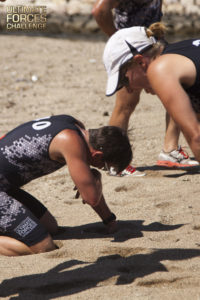
Team Australia at breaking point
We had enthousiast contestants in the past who claimed “i’m an allround athlete, I do step-lessons 4 times a week and I do horse riding every week” and UFC will not prevent this enthousiast contestant joining the 10 days competition. In first we had some real surprise contestants of which we expected to drop out after 1 day and they made it to the end ranking high in score and on the other hand, even drop out contestants become great ambassadors for UFC. We offer everybody a real chance to prove themselves, no mater what. Our point of view… We want you to give up, it’s your’s to prove otherwise.
Good preparation and endurance is key in the Ultimate Forces Challenge and for each individual endurance is a mater of perspective. How to train endurance and keep up for four days and nights you can train but make sure you find some expertise in your inner circle to prepare as best as you can.
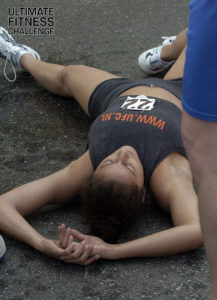
UFC 2005, heat is exhausting
YOUR OOMPH, YOUR ZOOM, your zip, the spring in your step, the get-up-and-go in your giddy-up: Whatever you call it, if you exercise long (and hard) enough, you may risk losing it at some point, feeling stale or tired during workouts, and seeing your race times get slower and slower. That kind of performance decline has a variety of possible explanations, most temporary and fixable but some more serious. Here’s a field guide to what might be keeping you from doing your best.
* Lack of sleep. The cause of a bad workout week might be as simple as not getting enough shut-eye. Sleep is sometimes called a legal performance aid because of its ability to promote recovery from workouts—key for endurance–or power-based sports, such as running, biking, or weightlifting. Research also suggests sleep helps embed a task or skill, which is important for athletes in precision sports, including swimming and basketball. Small studies conducted at Stanford University indicate that swimmers, basketball players, and members of the tennis team all improved on measures of performance after increasing their sleep time to 10 hours a night for several weeks. Try to follow their lead and see if you bounce back.
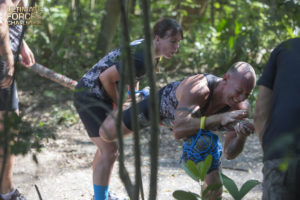
Adam already injured keeps going
* Nutrition. It’s important to make sure your overall caloric intake matches your activity level. Newbies often overestimate how much they are working out and discover the hard way that they can’t eat whatever they want just because they’re training for a sprint triathlon, says Patrick Valentine, an endurance sports coach with Carmichael Training Systems, an online coaching company. More-competitive athletes, on the other hand, are often trying to get lean. In pursuit of that goal, they may restrict food until they simply run out of gas, he says. It’s also not a good idea to severely limit carbs, protein, or fat, all of which are essential, says Lisa Callahan, codirector of the Women’s Sports Medicine Center at the Hospital for Special Surgery.
“And it’s not just what you eat but when you eat,” says Callahan. If you’re working out hard or for more than 30 or so minutes, it helps to have something in the tank first. And carbs—preferably from fruits, vegetables, and whole grains rather than processed foods—are key after a workout to replace glycogen stores, she says. (A little bit of protein is also recommendedafter a hard workout.) If you need help figuring it all out, especially if you’re also trying to lose weight, consult a sports nutritionist.
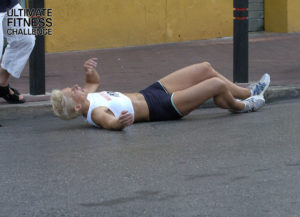
UFC 2005 Carla gave it all in this run
* Life stress. A running coach asked me several years ago, when I told him I didn’t feel on my game, if there was anything else going on in my life that might be considered a major stress. You mean, I said, like my parents’ recent separation? Um, yes! Sure, you can relieve stress through exercise, but as I found out on the track, its effects can also put the kibosh on performance gains. Give yourself a break and realize it may not be the best time to aim for a personal best if you’re grieving a loss, just got laid off, or are experiencing some other traumatic event. Go back to working out for fun for a while. And realize that exercise alone may not be enough to lift your burdens; try meditation, talking to a friend, or other nonathletic sources of relief.
* Exercise-induced asthma. Seems odd that fatigue or underperformance would be a symptom of asthma, but it happens. A significant number of college athletes, and as many as half of elite athletes, depending on the sport, experience exercise-induced asthma. (Emma Snowsill, an Australian triathlete who won an Olympic gold medal in Beijing, was diagnosed in 2007 after feeling run-down and tired.) Sufferers may not have the wheezing and other symptoms typical of asthma. But if you cough after exercise or lose steam midway during your activity, you might be experiencing EIA, says Callahan. See an allergist or pulmonologist. EIA may be easily treated with an albuterol inhaler, or by nondrug measures like an especially long warm-up.
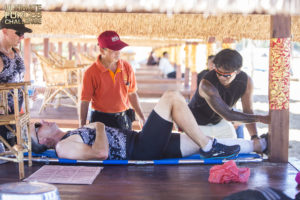
2016 Bali, Wayne injured
* Too much training. “Unexplained underperformance syndrome” is a diagnosis by exclusion, one that doctors arrive it if fatigue or poor performance can’t be explained by medical or other factors. Besides feeling tired, a sufferer may experience a depressed mood, altered sleep pattern and appetite, and often a series of colds or other bugs. It seems to be sparked by insufficient recovery from exercise rather than simple overtraining, says Carl Foster, an exercise and sports scientist who directs the Human Performance Laboratory at the University of Wisconsin-LaCrosse. After all, athletes can handle increasingly tough workloads. Research in horses, Foster says, showed that it was possible to increase the intensity and length of hard workouts without triggering problems; taking away the easy days in between, however, caused them to go “off their feed.”
The toughest part for athletes used to dealing with setbacks by working even harder is that rest is the only remedy. Prevention is the best way to deal with overtraining, says Foster. “When you design a training program, you have got to have a recovery period every week,” he says. Also, include longer periods of light training during your season. Valentine, for example, will tell the athletes he coaches not to talk to him for two weeks in between seasons or training blocks; during that time, they train without structure and get a physical and mental break. (If you’re prone to Type A-ness, getting a coach or following a training plan that includes rest may force you to build recovery into your schedule.) If you’re already experiencing symptoms, it’s time to scale back and consider how realistic your short-term goals are. Seek a physician’s help if you don’t feel better.
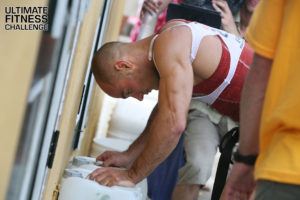
UFC 2006 Robin Veen experienced, it’s really heavy
* More serious medical issues. The inability to complete a workout that was previously a piece of cake might be rooted in a medical problem such as an underactive thyroid gland, anemia, or depression. And William O. Roberts, an internist at the University of Minnesota who researches athletic health issues, says that even if there’s no pain or pressure in the chest, a consistent loss of steam may signal cardiovascular disease, particularly in athletes over 35. If you notice your heart rate is particularly high even though you’re only creeping along, that’s also a sign something may be amiss, he says. Women, in particular, may have very nonspecific symptoms of heart disease and shouldn’t assume that, because they’re athletic, they’re immune, says Callahan.
A doctor will take a medical history and perform a physical exam and may order tests like an EKG or stress test. Of course, heart disease in young people is rare, but because of its potentially serious consequences, it’s better to be safe than sorry. If everything seems OK, the doctor can consider other health ailments. When to get checked out? “If you take three days off and don’t feel better,” says Foster, “train light and get to a physician,” preferably one who has experience with athletes.

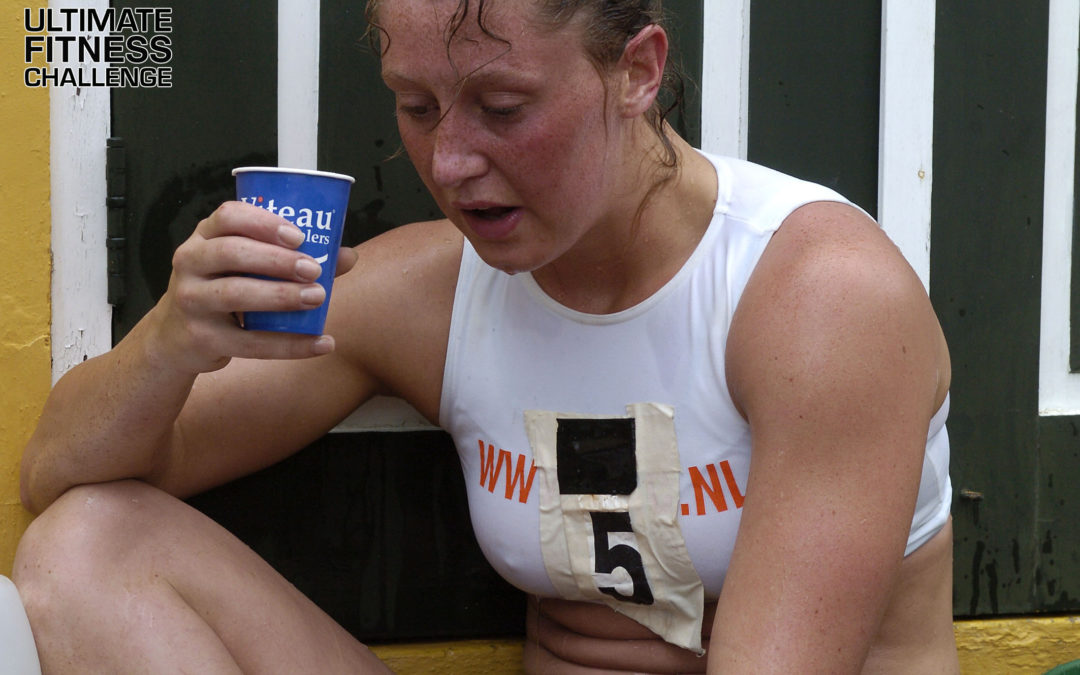
Recent Comments